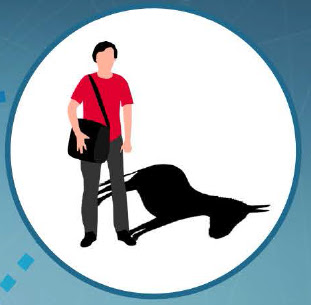Despite the pandemic threatening huge unemployment,
some people managed to get new jobs in the last six months.
*****
Alma Sardas, 21, worked as hotel staff in Fort Worth, Texas.
She lost her job and income with the hotel closure. Through Ziprecruiter, she
was lucky to find a work-from-home position. She would become a ‘virtual
assistant’ to Hermann Ziegler, a businessman in Hong Kong. Ziegler interviewed
her on Zoom. She was hired, and she received $4590 in her account. More money
would be transferred; she should keep her salary and expenses, and transfer the
rest to the Hong Kong Company’s vendors.
*****
Denis Newton, 21, lost her job at a fitness center.
She sent her resume online to several places. A woman interviewed her at
length. Denis started working as a “Local Hub Inspector” in May. Every day she received
boxes carrying Apple watches and laptops. Her job was to open them, check for damage,
and mail them to the foreign addresses sent by her employer.
*****
Soon Alma and Denis felt suspicious. When they started
asking questions, their employers disappeared. The police told the young girls
they were used as money mules.
A “money mule” is someone who agrees to share their
bank details with a criminal. The criminal deposits cash in that account, and
asks to send it to other accounts. The mule is paid for offering the service.
It is not important if the duped person was aware or not aware of the criminal
activity. Letting your account be used for purifying illicit money or
laundering it is a criminal act.
*****
Organised criminal gangs can earn big money through
drugs, human trafficking, counterfeits, terrorism or cybercrime.
Cybercriminals, with banks and ATMs as the targets, loot a mind-boggling $1.5 trillion
annually. One mega-attack linked to the Lazarus group resulted in withdrawals
from 12000 ATMs in 28 countries in a preplanned two-hour time frame. Not all
the mules withdrawing cash from ATMs were aware of the criminal connection.
For criminals to hide their tracks, the tainted money
needs to move through the financial system to disguise its origin and
ownership. Finally, the laundered funds are re-introduced into the legal
economy, or invested officially in assets. The role of money mules is critical
in this “cleaning” operation. This week SWIFT has issued a 28-page report
called “follow the money” that offers interesting details.
Indians talk about converting “black” money into “white”.
Black money is simply unaccounted money, usually in cash, hidden from tax
authorities. It may or may not be associated with crime. The money mules
discussed in this article, knowingly or unknowingly, assist criminals.
*****
People who have lost jobs, students and the poor are more
desperate to earn in coronavirus times. Since April, online HR scams have
soared 295% and money laundering 609%. Internet dating, e-commerce, reshipping,
loans, unemployment benefits, lottery are the main vehicles used. Scams have occurred
everywhere - USA, UK, Singapore, Australia, New Zealand. In Singapore, money
mules can be fined S$500,000 and jailed up to 10 years. In the UK, even young
students can be banned from using the banking system and jailed up to 14 years.
*****
Never give your bank details to strangers. Close your
dormant bank accounts (they can be used without your knowing about it). Be
cynical about job offers where everything is online. A person you have never
met offering to send money to your account, whether lottery or inheritance or charity
or gift, say NO. If you are already targeted, speak to your bank and report to
the police.
Remember there is no such thing as quick money.
Ravi

मला कुणीच असे पैसे देत नाही. मी किती बावळट आहे हे अश्या लोकांना कळत असेल
ReplyDeleteoooer!
ReplyDelete